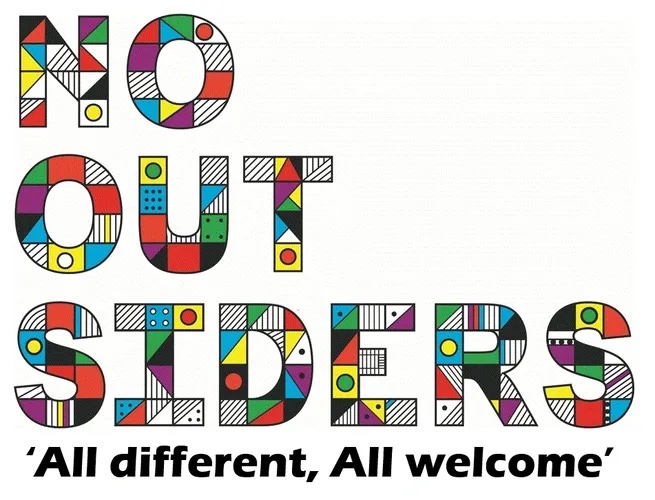
Pennard Primary School
No Outsiders School
In Pennard Primary school, there are no outsiders. We are all different, and we know that this is something that should be celebrated!
'No Outsiders' is a programme that promotes an ethos inclusion and tolerance and aims to educate children about diversity within our communities and addresses issues such as sexism, ageism, race and different types of families. No Outsiders covers topics that are protected by the Equality Act 2010.
It is taught to each year group through the use of age-appropriate books such as 'And Tango Makes Three', '10 Little Pirates' and 'Dreams of Freedom'.
No Outsiders also has a focus on well-being and mental health, with the aim that all children feel they belong and have a valued contribution to the school.
 No Outsiders Core Values:
No Outsiders Core Values:
- Respect for diversity through education in schools.
- Commitment to community cohesion through understanding and acceptance of difference.
- Promotion of dialogue to counter fear and hate in society.
How is No Outsiders implemented?
No Outsiders is implemented through high quality books, which have been carefully selected and are age appropriate.
Lessons plans have been developed to allow children to express their views and beliefs openly and freely and to promote inclusion for all.
Discussions from the books are in depth, widening the children’s understanding and awareness linking directly to the new curriculum and the four purpose.
Assemblies are another way that No Outsiders is implemented where children enjoy finding out about the world around them, with the stories promoting a sense of belonging and community.
Frequently asked questions
What do I say when my child comes home and asks “how do two men have a baby?”
Lots of people have babies in different ways like fostering or adoption. They are still a family regardless of how the children arrive. They still love and look after their children the same as if they have given birth to a child.
Are primary children too young to be taught about gay and lesbian relationships?
We are choosing to teach our children to be respectful of all choices people make. Whether this is sexual orientation, gender choices or fashion choices! Also, some children in our school grow up in same sex families and their families should be represented just as much.
Are you teaching gay lessons?
We are teaching about equality and the values that are reflected by British law.
Can I remove my child from these lessons?
No. Relationship education is statutory. If you are worried about the content please talk to your class teacher, or Ms Hanson about your concerns.
My religion says it is wrong
We understand and respect your beliefs. We are teaching the children about the world around them and that gay and lesbian people exist. In Britain society is diverse and the children need to know that diversity exists, even if their religion disagrees with it.
Below you will find links to see all the books each year group will look at when being taught a 'No Outsiders' lesson. You will also find videos of example books that are used in the programme, and a small description of what a lesson would look like using these books. Please feel free to contact the school anytime if you have any questions or worries concerning the No Outsiders programme.
Early Years example lesson
For this lesson we use the story Red Rockets and Rainbow Jelly, written by Sue Heap and Nick Sharratt. Our learning intention of for the children to understand that its okay to like different things. First we might get the children to discuss something like their favourite fruit. They will find very quickly that they all have a different favourite! Then after the book, the class would discuss the fact that the two main characters from the book were still friends after we discovered they had a lot of differences! This lesson helps open children's minds to the fact that there may be vast differences between themselves and the people around them.
Bae 3 example lesson
For this lesson we would read King and King, written by Linda de Hann and Stern Nijland. Our learning intention would be for the children to understand why people get married.
First we would discuss the word marriage. Do any children know anyone who is married? Have they been to a wedding themselves? This is a great opportunity for children to discuss their own experiences. Then after we have read the story, we might look at famous examples of married couples such as the Royal Family. We would discuss that when two people love each other, they have the right to get married in this country.